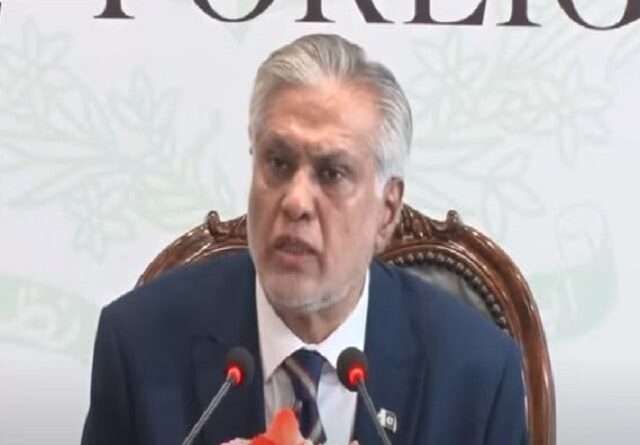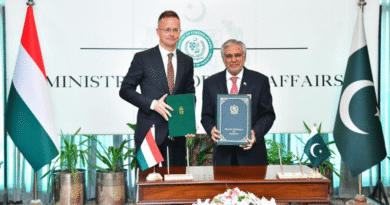Tax on Banks NBP Review
|
Getting your Trinity Audio player ready...
|
Introduction
In a significant move, Prime Minister Shehbaz Sharif has taken steps to address the issue of the additional 15% income tax on banks and reprimanded the National Bank of Pakistan (NBP) president for his unauthorized overseas trip. A high-powered committee, led by Deputy Prime Minister Ishaq Dar, has been constituted to review the controversial tax policy affecting banks, while the PM has directed the recovery of funds spent by the NBP president during a trip that violated government protocols.
H1: The Committee on Taxation and Bank Profits
In a bid to resolve the ongoing issue regarding the 15% additional income tax on banks, the government has established a committee. This committee’s mission is to review and resolve the tax implications for banks that fail to maintain a 50% advance-to-deposit ratio (ADR). Under current policy, banks with ADR ratios below this threshold face the imposition of the 15% tax, leading to significant concerns within the financial sector.
H2: Key Players in the Committee
The committee, which will be headed by Finance Minister Ishaq Dar, will involve key stakeholders such as:
- Finance Minister
- Minister for Law
- Minister of State for Finance
- Attorney General of Pakistan
- Finance Secretary
- Federal Board of Revenue (FBR) Chairman
- State Bank of Pakistan (SBP) Governor
- Asma Hamid
The committee is tasked with reviewing the legal framework surrounding the ADR requirements and exploring alternative fiscal methods to ensure that bank profits are appropriately taxed, especially those derived from government securities.
H2: Terms of Reference for the Committee
The committee’s Terms of Reference (ToRs) include:
- Reviewing the existing legal framework related to ADR for banks
- Proposing alternative fiscal schemes for taxing profits from government securities investments
- Engaging with the banking sector to build a consensus on the path forward
- Providing firm recommendations to help the government achieve its revenue goals by the end of the fiscal year
The committee is expected to submit its report within a week, with Dar being tasked to suggest the necessary legal amendments and regulatory changes.
H1: NBP President’s Unauthorized Overseas Trip
In another matter, PM Sharif has expressed dissatisfaction over the actions of the NBP president, Rehmat Ali Hasnie, who traveled abroad without obtaining prior approval from the government. The PM’s office had issued clear instructions requiring high-ranking government officials to seek approval for international travel to avoid unnecessary expenses and ensure compliance with security and confidentiality guidelines.
H2: Details of the Unauthorized Trip
The NBP president visited France to attend a business executive course. However, this trip was made without securing the mandatory approval from the Prime Minister’s office, breaching government policies. The expenses for this trip, amounting to Rs7 million, were charged to public funds.
H2: The PM’s Response to the Breach
PM Sharif has ordered the recovery of the Rs7 million spent on the unauthorized trip. The Ministry of Finance has formally written to the NBP president, highlighting that the expenditure was made without the PM’s approval, which is in violation of the government’s instructions. The letter stresses that such actions are considered defiance and “willful insolence” and warns of disciplinary action if this behavior is repeated in the future.
H1: Government Policies on International Travel
The Pakistani government has set clear guidelines regarding the overseas travel of senior officials. These instructions are aimed at reducing wasteful expenditure and ensuring that international trips are in line with the country’s security and fiscal priorities. Despite these clear directives, instances of bureaucrats and heads of government organizations bypassing these regulations for personal benefits have been noted.
H2: Misuse of Official Resources and Perks
There have been multiple instances of government officials misusing their position for personal gain. One example is the practice of bureaucrats staying on various boards of companies unrelated to their official duties, earning substantial fees in addition to their salaries. Such actions undermine public trust in government institutions and contribute to inefficiency and wasteful spending.
H2: Disciplinary Actions and Government Oversight
In light of these incidents, the government has also taken steps to regulate board fees for civil servants. A cap of Rs1 million per annum was introduced for board fees, but the implementation of this cap remains inconsistent. While some officials have complied with the cap, others continue to draw excessive amounts without proper oversight.
H1: Further Implications of the NBP Incident
The actions of the NBP president have sparked a broader conversation about the misuse of public funds and the lack of accountability in government institutions. This case highlights the need for stringent oversight mechanisms and the importance of following established protocols to maintain transparency and reduce corruption within government departments.
H2: Recovering the Funds: A Step Towards Accountability
The government’s decision to recover the funds from the NBP president is part of a larger effort to reinforce accountability within the public sector. By taking action against those who misuse public funds, the government aims to set a precedent that will deter similar violations in the future.
H2: The Role of Bureaucrats and Public Trust
As representatives of the government, bureaucrats play a crucial role in shaping public trust in state institutions. Ensuring that they adhere to ethical guidelines and regulatory frameworks is essential for maintaining this trust. The PM’s direct intervention in this case serves as a reminder that bureaucratic power must be used responsibly and transparently.
H1: Key Takeaways and Future Outlook
The formation of the committee to address the tax on banks and the recovery of funds from the NBP president reflect the government’s commitment to addressing financial transparency and public accountability. With the committee’s efforts to resolve the tax issue, there is potential for more effective regulation of the banking sector, ensuring a fair distribution of tax burdens. Additionally, the disciplinary action against the NBP president sends a strong message about the government’s stance on financial mismanagement.
H2: Conclusion
As Pakistan grapples with complex financial and governance challenges, it is crucial for all stakeholders, from government officials to financial institutions, to follow the established rules and regulations. This not only ensures accountability but also fosters a system of governance that prioritizes public trust and the efficient use of resources.
FAQs:
- What is the 15% additional income tax on banks? The 15% additional income tax applies to banks whose advance-to-deposit ratio (ADR) falls below 50%, encouraging banks to improve their lending practices.
- Why did the PM reprimand the NBP president? The NBP president was reprimanded for taking an unauthorized overseas trip, which violated government protocols regarding approval for international travel.
- What are the committee’s goals regarding the banking sector tax? The committee aims to review the current tax policy, propose alternative fiscal solutions, and engage with the banking sector to ensure fair taxation.
- How does the government regulate overseas travel for officials? Senior government officials are required to seek approval from the Prime Minister’s office before undertaking international travel to avoid wasteful expenses.
- What actions has the government taken against misuse of public funds? The government has initiated disciplinary actions against officials misusing funds and has implemented regulations to limit board fees and travel expenses.
SEE ALSO:
https://skipper.pk/2024/12/07/spi-december-5-2024-price-drop-inflation/




